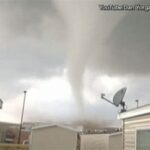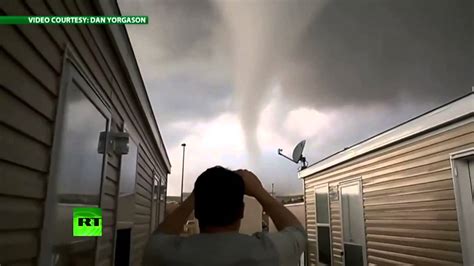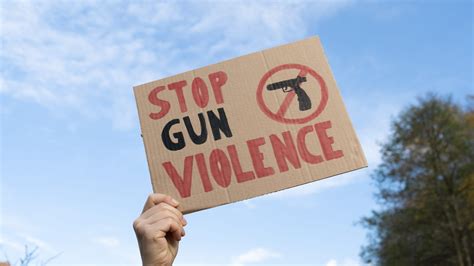
Israel reportedly conducted a strike inside Iran early Friday, targeting a site near Isfahan, according to U.S. officials, in what appears to be a retaliatory action following Iran’s missile and drone attack on Israel last weekend.
The strike, which occurred amidst heightened tensions in the region, involved missiles, although the specific target remains unclear. Iranian state media reported explosions near Isfahan, home to a major airbase and nuclear facilities, but claimed that air defense systems intercepted the threats. “Following the activation of air defense over some parts of the country, no significant damage has been reported so far,” Iran’s state-run Press TV stated.
The International Atomic Energy Agency (IAEA) confirmed that there was no damage to Iran’s nuclear sites. “IAEA can confirm that there is no damage to Iranian nuclear sites,” the agency said in a statement, continuing to monitor the situation closely.
U.S. officials, speaking on condition of anonymity, confirmed Israel’s involvement but offered limited details about the operation’s scope or targets. The Pentagon has remained silent, offering no comments on the reported strike.
This latest development escalates the already precarious situation in the Middle East, raising concerns about a wider conflict. The back-and-forth strikes follow months of increasing friction, including alleged Israeli attacks on Iranian personnel in Syria and ongoing proxy conflicts in the region.
While Israel has not officially claimed responsibility for the strike, it comes after Israeli leaders vowed to respond to Iran’s unprecedented direct attack, which involved hundreds of drones and missiles. The majority of those projectiles were intercepted by Israel and its allies, including the U.S. and the U.K.
Details of the Strike
Initial reports described explosions heard near Isfahan, a strategically significant city in central Iran. Isfahan hosts a large airbase, several military research facilities, and, notably, the Natanz uranium enrichment facility, a key component of Iran’s nuclear program. The choice of Isfahan as a target location immediately raises questions about the intended message and potential targets.
Iranian state media initially downplayed the incident, reporting that air defense systems had successfully intercepted incoming threats. They presented an image of normalcy, emphasizing the lack of significant damage. However, the very fact that air defenses were activated indicates a perceived threat and an acknowledgment of some form of attack.
Independent analysts suggest that even if the strike caused minimal physical damage, the psychological and strategic impact could be considerable. The ability to penetrate Iranian airspace and strike a location near sensitive sites demonstrates a level of capability that Iran must take seriously.
Regional and International Reactions
The international community has largely called for restraint and de-escalation. The United Nations Secretary-General António Guterres reiterated his plea for all parties to avoid any actions that could further inflame tensions in the region. Major European powers, including France and Germany, issued statements urging both Israel and Iran to exercise maximum restraint.
The United States, while reaffirming its commitment to Israel’s security, has reportedly conveyed to Israel that it does not seek a wider conflict with Iran. U.S. officials have emphasized the importance of avoiding actions that could lead to a full-blown regional war.
Arab nations in the region, many of whom have complex relationships with both Iran and Israel, are also deeply concerned about the potential for escalation. Countries like Saudi Arabia and the United Arab Emirates, which have historically been rivals of Iran, have called for dialogue and diplomatic solutions.
Background to the Conflict
The current tensions are rooted in a long history of animosity between Israel and Iran. Iran does not recognize Israel’s right to exist and has consistently supported groups like Hezbollah and Hamas, which have carried out attacks against Israel. Israel, in turn, views Iran’s nuclear program as an existential threat and has repeatedly threatened to take military action to prevent Iran from acquiring nuclear weapons.
In recent years, the conflict has played out primarily in the shadows, with Israel allegedly conducting covert operations inside Iran and targeting Iranian personnel and assets in Syria. These actions have been aimed at disrupting Iran’s nuclear program and preventing it from establishing a permanent military presence in Syria.
The assassination of Iranian nuclear scientists, cyberattacks on Iranian infrastructure, and strikes on Iranian weapons convoys in Syria have all been attributed to Israel, although Israel has rarely claimed responsibility directly. Iran has vowed to retaliate for these actions, but its responses have often been indirect, relying on its proxies in the region.
The Trump administration’s decision to withdraw from the Iran nuclear deal in 2018 and reimpose sanctions on Iran further exacerbated tensions. Iran has since taken steps to roll back its commitments under the deal, raising concerns about its nuclear ambitions.
The Broader Implications
The latest exchange of strikes between Israel and Iran has raised fears of a wider conflict that could engulf the entire Middle East. Such a conflict could have devastating consequences for the region and the world, disrupting oil supplies, triggering refugee flows, and potentially drawing in other major powers.
The U.S. role in the conflict is particularly critical. While the Biden administration has sought to de-escalate tensions, it has also reaffirmed its unwavering commitment to Israel’s security. The U.S. has a significant military presence in the region and could be drawn into a conflict if Israel comes under direct attack.
The international community faces a daunting challenge in trying to prevent a further escalation. Diplomatic efforts to revive the Iran nuclear deal have stalled, and there is little trust between Iran and the West. A new approach is needed to address the underlying causes of the conflict and create a more stable and secure environment in the Middle East.
The Potential for Further Escalation
Several factors could contribute to further escalation in the coming days and weeks. One is the possibility of further retaliatory strikes by either Israel or Iran. Another is the potential for Iran’s proxies, such as Hezbollah and Hamas, to launch attacks against Israel. A third is the risk of miscalculation or accident, which could quickly spiral out of control.
The situation is further complicated by the ongoing conflicts in Syria, Yemen, and other parts of the region. These conflicts have created a volatile environment in which tensions between Israel and Iran can easily spill over.
Expert Analysis
Experts warn that the current situation is extremely dangerous and that the risk of a major war is higher than it has been in years. “We are in uncharted territory,” said Dr. Emily Landau, a senior research fellow at the Institute for National Security Studies in Tel Aviv. “The rules of the game have changed, and it is unclear what will happen next.”
Other analysts emphasize the importance of diplomacy and de-escalation. “There is no military solution to this conflict,” said Dr. Trita Parsi, executive vice president of the Quincy Institute for Responsible Statecraft. “The only way to achieve lasting peace is through dialogue and diplomacy.”
Future Scenarios
Several possible scenarios could play out in the coming days and weeks. One is that both Israel and Iran will exercise restraint and avoid further escalation. This would require both sides to back down from their recent threats and commit to a diplomatic solution.
Another scenario is that there will be further tit-for-tat strikes, but that these will remain limited in scope and intensity. This would be a dangerous situation, but it might be possible to contain the conflict and prevent it from spiraling out of control.
A third scenario is that there will be a major escalation, leading to a full-blown regional war. This would be the worst-case scenario, and it could have devastating consequences for the Middle East and the world.
The Strategic Implications for Israel
For Israel, the strike represents a calculated risk. On one hand, it sends a clear message to Iran that it will respond to any attack on its territory. On the other hand, it risks provoking a wider conflict that could threaten Israel’s security.
Israel’s strategic calculus likely involves several factors, including its assessment of Iran’s capabilities and intentions, its confidence in its own military capabilities, and its relationship with the United States.
The Strategic Implications for Iran
For Iran, the strike represents a setback. It demonstrates that Israel is capable of penetrating its air defenses and striking targets inside its territory. This could undermine Iran’s credibility and embolden its adversaries.
Iran’s strategic calculus likely involves several factors, including its desire to deter further Israeli attacks, its commitment to its nuclear program, and its relationship with its regional allies.
The Impact on the Iran Nuclear Program
The latest tensions have raised concerns about the future of the Iran nuclear program. If the conflict escalates, Israel could take military action to destroy Iran’s nuclear facilities. This would be a risky move, but it could be seen as necessary to prevent Iran from acquiring nuclear weapons.
Iran has consistently denied that it is seeking to develop nuclear weapons, but its actions have raised doubts about its intentions. The international community is closely monitoring Iran’s nuclear program, and any further escalation could trigger a crisis.
The Role of International Diplomacy
International diplomacy will be crucial in preventing a further escalation of the conflict. The United Nations, the United States, and other major powers must work together to de-escalate tensions and promote dialogue between Israel and Iran.
A key challenge will be to find a way to revive the Iran nuclear deal. This would require both Iran and the United States to make concessions, but it could be the best way to prevent Iran from acquiring nuclear weapons.
The Long-Term Outlook
The long-term outlook for the Middle East remains uncertain. The conflict between Israel and Iran is just one of many challenges facing the region. Other challenges include the ongoing conflicts in Syria, Yemen, and other countries, the rise of extremist groups, and the growing competition for resources.
Addressing these challenges will require a comprehensive approach that includes diplomacy, economic development, and security cooperation. The international community must work together to create a more stable and prosperous Middle East.
Conclusion
The reported Israeli strike inside Iran marks a dangerous escalation in the ongoing tensions between the two countries. While the immediate impact appears limited, the potential for further escalation remains high. The international community must act swiftly and decisively to de-escalate the situation and prevent a wider conflict that could have devastating consequences for the region and the world. Diplomacy, restraint, and a commitment to finding peaceful solutions are essential to averting a catastrophe. The coming days and weeks will be critical in determining whether the region can step back from the brink of war.
Frequently Asked Questions (FAQ)
1. What was the target of the reported Israeli strike in Iran?
While U.S. officials confirmed the strike, the specific target remains unclear. Reports indicated explosions near Isfahan, home to a major airbase and nuclear facilities. Iranian state media claimed air defense systems intercepted the threats and no significant damage was reported. The IAEA confirmed that there was no damage to Iran’s nuclear sites.
2. Has Israel officially claimed responsibility for the strike?
No, Israel has not officially claimed responsibility for the strike. However, it followed vows from Israeli leaders to respond to Iran’s recent missile and drone attack on Israel.
3. What was the reason for Iran’s attack on Israel that preceded this strike?
Iran’s attack on Israel was in retaliation for what it perceived as an Israeli strike on its consulate in Damascus, Syria, which resulted in the death of several Iranian military officials, including a top commander.
4. What has been the international reaction to the reported strike?
The international community has largely called for restraint and de-escalation. The UN Secretary-General has urged all parties to avoid actions that could further inflame tensions. Major European powers have also issued statements urging both Israel and Iran to exercise maximum restraint. The U.S. has reaffirmed its commitment to Israel’s security but has reportedly conveyed that it does not seek a wider conflict with Iran.
5. What are the potential consequences of further escalation between Israel and Iran?
Further escalation could lead to a wider regional conflict, disrupting oil supplies, triggering refugee flows, and potentially drawing in other major powers. It could also jeopardize the Iran nuclear deal and lead to further instability in an already volatile region. The potential for miscalculation or accident is also a significant concern.









